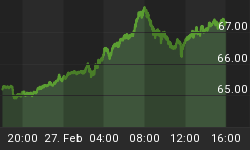The euro zone rating was downgraded, as the crisis is entering into its darkest phase. The U.S. economy is still healing and can withstand only a mild European recession. What could happen to the U.S. dollar?
Euro zone: Is it the calm before the storm?
On Friday, nine euro zone states, including France and Italy, had their ratings lowered by the Standard and Poor's agency. Germany kept the AAA. Apparently, the agency does not believe the efforts taken so far are enough to create growth. What could happen now? Unity is at risk. Consumer confidence might sink. Recession should deepen. Reforms could be delayed. The European political uncertainty will be elevated in the first part of this year. Bond yields could spike again, despite recent correction. The central bank can only provide liquidity. Solvency is the big issue. The European Banking Authority (EBA) has calculated 65 banks would need about euro 75 billion by mid 2012. The reality could be worse considering banks exposure to the southern states.
Last week, the European Central Bank left rates unchanged at 1.00%. The decision was unanimous. President Draghi said the E.C.B. will cut rates again, if the economic conditions deteriorate. So, another round of cuts is possible in March and/or April. Why? Greece might default by the first six months of 2012. Private creditors are reluctant to voluntarily reduce Greece's debt. The deficit is huge and increasing. Reforms are on standby. On Monday, the troika (IMF, E.U, and E.C.B.) will again be in Athens to size Greece's progress. The bailout package, which was agreed last year, will not start without a real turnaround.
The U.S. economy is still healing.
In this magmatic scenario, the U.S. is holding up quite well. In December, unemployment declined to 8.5%, while payroll employment rose 200,000, from a three-month average of 143,000. The G.D.P. is expected to growth 3.5% in the fourth quarter of 2011. However, results might be transitory and can be reversed in the first three months of this year. In fact, favourable seasonal conditions played an important role in November and December numbers. As an example, the employment of couriers and messengers rose 42,000 in December compared to a monthly trend of 1,000. Employment in construction rose instead 17,000, versus an average of 3,000 per months over the previous three months.
During the holidays, consumers relied on credit again. As a result, the personal saving rate fell to 3.5% from 5.0%. At the contrary, credit rose 0.8% in November, the highest level in any single months in more than ten years. Will it last? Deleveraging is still unfolding and incertitude about the future is high. Retail sales rose a tiny 01% in December. Actually, core sales declined for the first time since 2010. In the first week of 2012, initial claims moved up to 399,000. The country is still healing and has the capacity to face just a mild European recession. Let us hope, it will only be that. The European's clock is a few minutes away from midnight again.
Euro/USD: Reaching a key support line.
The euro/usd should be weak for the first part of 2012. The next targets could be 1.26, 1.24 and eventually 1.20. Nonetheless, in February, the euro could temporarily rebound to 1.28/1.30. Why? Markets are discounting a rate cut of 25 basis points to 0.85%, which is above U.S. levels. Technically, prices are quickly approaching the lower channel-line at 1.26. Finally, some sentiment indicators are signalling oversold conditions for the euro/usd.
According to the Commitment of Traders report, published weekly by the Commodity Futures Trading Commission, large speculators (mainly futures funds) are extremely short the euro/usd. At the contrary, commercial traders (large financial institutions) have massively bought the euro since December.















